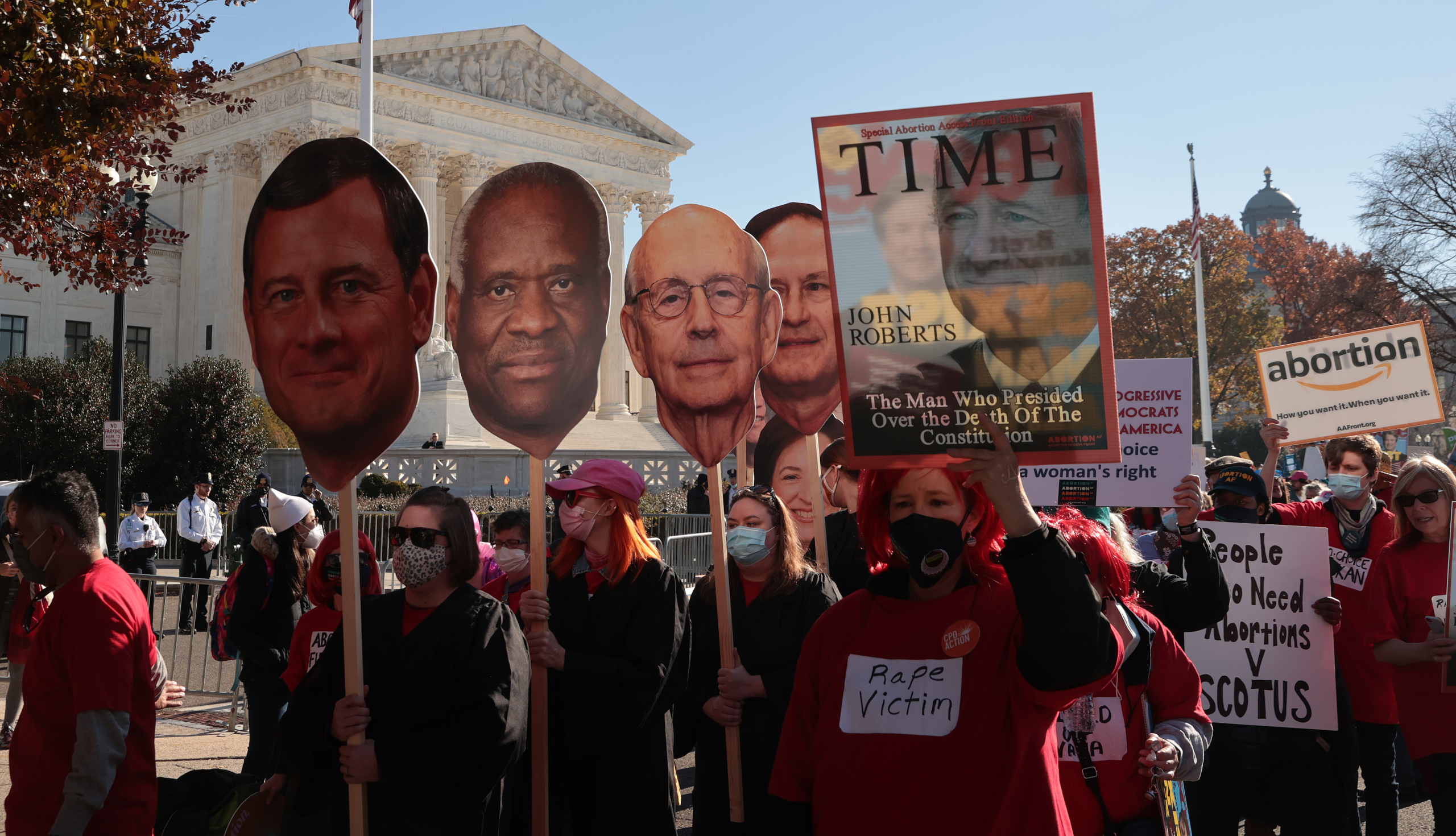Wednesday morning, December 1, the Supreme Court heard arguments in Dobbs v. Jackson Women’s Health Organization. The case examines a new Mississippi law that seeks to ban abortion after the 15th week of pregnancy, a move that challenges the national status quo. Scott G. Stewart, solicitor general for the State of Mississippi, went first, arguing for the Supreme Court to abandon its rulings in Roe v. Wade and Planned Parenthood v. Casey. He did very well under sustained questioning from liberal justices, especially Sonia Sotomayor. While the lawyers for the other side did well enough, they stumbled a bit more and, perhaps more importantly, rested the power of their argument on process rather than the Constitution.
 Stewart is a former law clerk to Justice Clarence Thomas, and it was quickly apparent he was very comfortable arguing before the Court. Most of his challenging interactions came from Justice Sotomayor, which is fitting because Thomas and Sotomayor are bookends regarding abortion on the High Court. If any votes can be taken for granted in this case, these two are far and away the odds-on favorites. Justice Thomas has written and spoken extensively about the Court’s jurisprudence in this area, and he will almost certainly write to overturn Roe and Casey. The opposite is true for Justice Sotomayor, who seemingly never met an imposition to elective abortions she found permissible.
Stewart is a former law clerk to Justice Clarence Thomas, and it was quickly apparent he was very comfortable arguing before the Court. Most of his challenging interactions came from Justice Sotomayor, which is fitting because Thomas and Sotomayor are bookends regarding abortion on the High Court. If any votes can be taken for granted in this case, these two are far and away the odds-on favorites. Justice Thomas has written and spoken extensively about the Court’s jurisprudence in this area, and he will almost certainly write to overturn Roe and Casey. The opposite is true for Justice Sotomayor, who seemingly never met an imposition to elective abortions she found permissible.
Esse Quam Videri
Sotomayor went after Stewart first, and the thrust of her colloquy, which she repeated and which was joined later by Justice Stephen Breyer, had a great bit of irony baked in. She described the legislative history of the Mississippi law they were examining, including multiple statements by legislators in that state that the law should pass because the composition of the Supreme Court had changed. Sotomayor suggested that, without new scientific information, the law had passed because Mississippi thought it could get it through the Supreme Court at this stage. She argued that changes in the political makeup of the Court are not a good reason for it to re-examine the abortion issue. She asked, “Will this institution survive the stench that this creates in the public perception that the constitution and its reading are just political acts?” and later, “If people actually believe that it’s all political, how will we survive?”
Sotomayor’s questions imply that it would be politically untenable for the Supreme Court to overturn Roe and Casey because those decisions would be seen as political. The imposition then is for the Court to act politically to save whatever is left of its reputation of being beyond politics. It makes your head spin, and of course, has no grounding in the Constitution. Stewart replied that “the court could very, very powerfully say ‘Look, our legitimacy really derives from our willingness to stand strong and stand firm in the face of whatever is going on and stand for constitutional principles …'”
Justice Brett Kavanaugh used his questioning to tidy up what the state of Mississippi was asking for in a series of questions. Stewart agreed with Kavanaugh that:
“The Constitution is silent and therefore neutral on the question of abortion. In other words, that the Constitution’s neither pro-life nor pro-choice on the question of abortion, but leaves the issue for the people of the states, or, perhaps, Congress to resolve in the Democratic process …”
Perhaps the weakest of all arguments one can give to keep Roe and Casey untouched is that they are already on the books. Julie Rikelman, litigation director of the Center for Reproductive Rights, argued on behalf of Jackson Women’s Health Organization and led with just such an argument. Stare decisis is Latin for “to stand by things decided.” In short, it is the doctrine of precedent. And the principles it enshrines are that it would be completely untenable for society if courts issued wildly disparate rulings on similar matters of law. It is a solid principle of jurisprudence and one we all benefit from, with great limits, however.

(Photo by Chip Somodevilla/Getty Images)
Change Is Good, Except When It Isn’t
Strict adherence to stare decisis’ own constructs would require the Supreme Court to recognize human slavery as legal, for instance. What then are the placid waters of consistency worth?
Chief Justice Roberts discussed the language in Casey regarding popularity and overturning precedent. He said, “it seemed to me to have a paradoxical conclusion that the more unpopular the decisions are, the firmer the court should be in not departing from prior precedent. It’s sort of a super stare decisis, but it’s super stare decisis for what is regarded as by many as the most erroneous decisions.”
Missing Justice Ginsburg
Both Ms. Rikelman and U.S. Solicitor General Elizabeth B. Prelogar showed poor form by not directly answering hypotheticals from the justices. Using hypothetical arguments to reach the heart of legal issues starts on day one in law school, and these advocates’ unwillingness to engage Supreme Court Justices in the act of hearing the case stood out like a sore thumb. Justice Samuel Alito wrestled with Prelogar until he had enough:
“I still don’t have your answer clearly. Can a decision be overruled simply because it was erroneously wrong? Even if nothing has changed between the time that that decision and the time when the court is called upon to consider whether it should be overruled? Yes or no? Can you give me a yes or no answer on that?”
It took her a lot longer than one word to get out, but the answer was “no.” That is, the current position of the Biden administration, and the Department of Justice, is that it is not appropriate for the Supreme Court to overturn a precedent on the basis that the original ruling was incorrectly decided. Solicitor General Prelogar’s presence and arguments themselves present proof the apolitical nature of the Court is a fantasy. Her arguments are the official arguments in the case on behalf of the United States. If Donald Trump were president, a different person would be solicitor general, making arguments in direct contravention to the ones she offered. Alas, the line between tragedy and comedy is often too diffuse to make out clearly.
The pro-lifers definitely had a better day at oral argument than the pro-choice advocates on Wednesday. Just how much that will translate to the Supreme Court’s eventual opinion(s) on the case remains to be seen. This Court watcher follows a simple maxim good for those on either side of any issue before them: If you expect to be disappointed, you won’t be let down. A decision is expected by summer.
~ Read more from Scott D. Cosenza.



